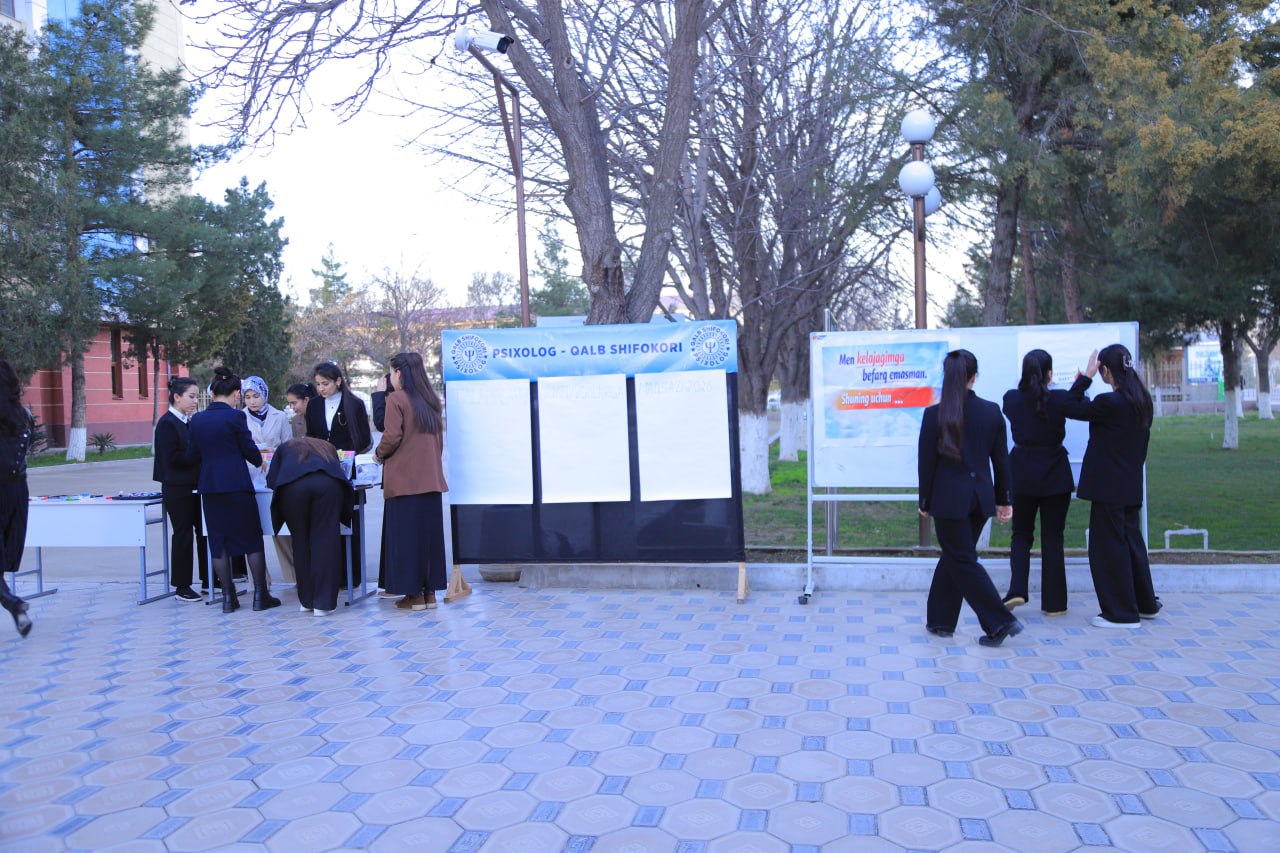Jizzakh State Pedagogical University
named after Abdulla Kadiri
head of the Department of “General Pedagogy”.
candidate of pedagogical sciences,
associate professor Kushvaktov Nemat Husanovich
+9893 301 33 53
nematKushvaktov1963@gmail.com
Annotation
As an emotional phenomenon, a selfless person is characterized by excessive effort, zeal, blind faith in the correctness of his views. In this article the importance of concept selfless and its characteristic points are highlighted. Also types of selflessness and its role among society are shown in this paper.
Keywords: Bigoted people, selfless, society, zealous, characteristic, view, consequence
Introduction
Along with the spiritual crisis that many countries are now experiencing, the scope of bigotry is also expanding. In this process, it cannot be denied that selfless in various forms endangers the life of society. Philosophers, lawyers, politicians, sociologists and religious scientists are studying the origin of selflessness and its negative consequences.
Today, in many regions, It is requiring that the extremist behavior of selfless person who are trying to aggravate the socio-political situation and take the lives of innocent people is becoming more and more dangerous..
President of the Republic of Uzbekistan Shavkat Mirziyoyev said at the 72nd session of the United Nations Security Council “We greatly value our holy religion as an embodiment of our ancient values. We strongly condemn those who associate our sacred religion with violence and bloodshed, and we will never compromise with them. Islam calls us to goodness and peace, to preserve original human qualities”.
The damage done by selfless to the individual and the society is very great. A bigot is someone who is angry, irritable, emotional and has strong negative emotions. He is one of the active carriers of destructive ideas. It is these qualities that allow him to win the hearts of supporters among the people.
Materials and Discussion
A selfless cannot see reality in its original state. Because he sees only what he is inclined to. He does not see the truth that others see, even when it is undeniably revealed. A selfless always unknowingly breaks social bonds and widens the chasm of discord because he considers himself to be right and others to be wrong. According to his narrow mind, everyone should live according to his pattern. Otherwise, he is considered a “lost” person. That’s why we need to inculcate the true content of any concept so that the young generation will not be influenced by foreign ideas. Therefore, our Uzbek language is a rich language, many words from other languages are found in it. One such word is the word “fanatic”. The word “zealous” is actually an Arabic word that means “extremely devoted”, “selfless”. In the explanatory dictionary of the Uzbek language, the word “zealous” is given “Mutaassib (Arabic) – extremely devoted; “Enthusiastic” is commented.
The book “Encyclopedia of Islam” says the following about “selfless”: “Selfless, fanaticism is a strong belief in the correctness of one’s faith, intolerant attitude towards other religious beliefs. Bigoted people or groups try to create instability in society. Throughout human history, such faith has been used for malicious purposes. Religious conflicts, as well as unresolved social, political and economic problems can also cause fanaticism.
In the process of education, we must explain to students that the special aspects of selfless are the interest in power, wealth, control, etc. And the most effective way of management should be focused. This prevents the mind from becoming fanatical. Recently, a group of young people who believe only in their own views and do not take into account the opinions of others have been noticed. Such actions are characteristic of manifestations of intolerance and bigotry.
In the encyclopedia of psychology, selfless is defined as follows: selfless is a person’s tendency to protect a certain opinion, rejecting various alternatives that are manifested in his activity and behavior.
The concept of ” selfless ” is derived from the Arabic word, which means “obsession with a belief or worldview, inability to tolerate any other views.” Selfless is, first of all, giving a special feature to a certain profession which the subject does not deviate from and rejects all other alternatives which finds its expression in all his activities and behavior.
Based on the above ideas, it can be said that selfless is a strong commitment to something you believe. Such people are constantly under the influence of overly valuable and overly important ideas. Such individuals treat people who express different views as enemies, and use all the means of struggle against them that suit their needs.
As an emotional phenomenon, a selfless person is characterized by excessive effort, zeal, blind faith in the correctness of his (most extreme, religious and political) views.
Adherence to one’s own views is usually combined with fanatics’ intolerance of all dissenters, an extremely indifferent view of the existing legal and moral norms that prevent the achievement of some goals that are incomprehensible and unattainable for the “ignorant”, but extremely valuable for the fanatics.
Simplistically, selflessness is divided into religious, ideological, political and patriotic bigotry.
Historically, religious selflessness has a special place among other types of selflessness as the first form. It is hidden in the structure of any religion, developed in certain historical conditions and can be used by various religious and political groups as a means of achieving their socio-political goals. In fact, religious fanaticism is a specific interpretation of a religious worldview and a special way of religious perception. The high level of danger of religious selflessness is that it can be used as a factor to manipulate the mind and behavior of believers.
Its psychological basis is trust.
Ideological selflessness is based on the readiness to sacrifice oneself for the victory of the idea. Giordano Bruno, who burned at the stake of the Inquisition, was an ideological fanatic who was just as bigoted as not giving up the idea that the earth is round. The ideas may be different, but selflessness is psychologically always the same. Political selflessness defends the superiority of its political goals and views determined by the political system, order, and power and for them (for example, for “Greater Germany” or for the Soviet power, “democracy for his victory, etc.) requires sacrifice. There are many examples of political selflessness and related terrorism in the struggle for power and vice versa, in order to protect their rights to maintain power. According to psychological sources, political selflessness always hides a desire for power, an interest in power, a desire to seize power at any cost and to subjugate people.
Selflessness in the spirit of patriotism (nationalism), as the ultimate level of patriotism and national pride, is socio-politically usually reflected in chauvinism. This concept is the latest form of French nationalism, the promotion of national supremacy, the pitting of the interests of one nation against the interests of all others, the widespread dissemination of national “pride” the incitement of national enmity and hatred comes from the word chauvinisme which means patriotism that relies on military forces and goes to extreme ignorance.
Psychology of fanatical personality
Why does a person become a fanatic, what motives motivate him to fight fanatically for his idea? The answer to these questions should be sought in human psychology. There are social, political, economic and many other reasons that cause selflessness.
According to Professor Olshansky, selflessness is a unique phenomenon of group and people psychology. For selflessness who support each other in mutual recognition, strong emotionality, blind faith in any information that confirms their views and the opposite, even benevolent and practical criticism are characteristic.
According to N. Inina’s opinion, a fanatic is always “infantile (immaturity of the organism, preservation of physical and mental conditions characteristic of children in adults), cave, which causes a person who does not understand himself and his original motives” fruit of public culture.
Another important sign of a fanatic is deep egocentrism. N. Inina explains why it is impossible to have a conversation with a selflessness based on fixed opinions: “Conversation implies a collision of different opinions. There is no place for other human personality, other opinions, views, way of life in the fanatical world. Such an egocentric, infantile characteristic means that there is no reflection characteristic of any mature healthy person”.
Psychological factors that cause the formation of selflessness
- Childhood upbringing (authoritarian, oppressive, suspicious, etc.);
- Individual characteristics (low self-esteem, personal identity, life position, idealization of oneself, fantasy);
- Self-destructive (destructive, destructive and self-centered) strategy of behavior in acute situations;
- Personality disorder: dependent, anxious, narcissistic.
When working with young people, it is necessary to pay attention to the psychological factors that cause the formation of selflessness. Of course, studying the family environment, talking with parents and helping to correct their mood are one of the main tasks facing teachers.
The main characteristics and mechanisms of fanatical consciousness formation are selflessness, conformity and intolerance. That’s why we work on each of these concepts when working with students. Selflessness is the process of turning the rules (ideas, views) considered true by the subject into dogma. Only if it is explained to the young people that the consciousness transformed into a dogma consists of mental-spiritual rigidity, stability, alienation from compromise and non-transformation (unchangeability), aggressive acceptance of any attempts of external influence.
Conformism (lat. conformis — similar, conforming) — adaptation to existing social order, dominant ideas and thoughts, passive acceptance of them. Conformists do not have their own position, they blindly follow any model that has the power of oppression without principle, uncritically. A conformist falls into the environment of bigots and follows their ideas.
“Intolerance has been identified by researchers as one of the main symptoms of bigotry. According to A.A.Lyubyshev any person who categorically rejects a point of view only because it contradicts his own point of view is intolerant.
Conclusion
When it comes to the development of selflessness, personal upbringing and character, social status and level of social contact with society, historical-political style of society and moral-psychological characteristics of an individual are of great importance. Therefore, in the education of young people, an educated, mature, stable person with his own point of view, who has found his place in the social society, who has achieved professional and personal success, is spiritually mature, rich in meaning, is formed through the upbringing of their psychology.
Based on the conclusions drawn during the study of the psychological characteristics of a selfless person and its consequences, it can be said that a selfless person strongly believes in the correctness of his opinion and worldview, does not believe in other beliefs and does not respect them.
Used References
1.Akbarov R. What is bigotry? //https://nasafziyo.uz/index.php?newsid=5551
- Social psychology: Course of lectures / B.N.Sirliev, R.Kh. Dushanov, I.K. Kalonov. – T.: Ministry of Internal Affairs Academy of the Republic of Uzbekistan, 2019. – 633 p.
- Olshansky D. V. Psychology of terrorism. – M., 2002.
- Polatkhan Kattaev, Bigotry creates conspiracies //https://hidoyat.uz/57691
- National encyclopedia of Uzbekistan. – B. 874. // www.ziyouz.com library
- https://qomus.info/encyclopedia/cat-k/konformizm-uz/





